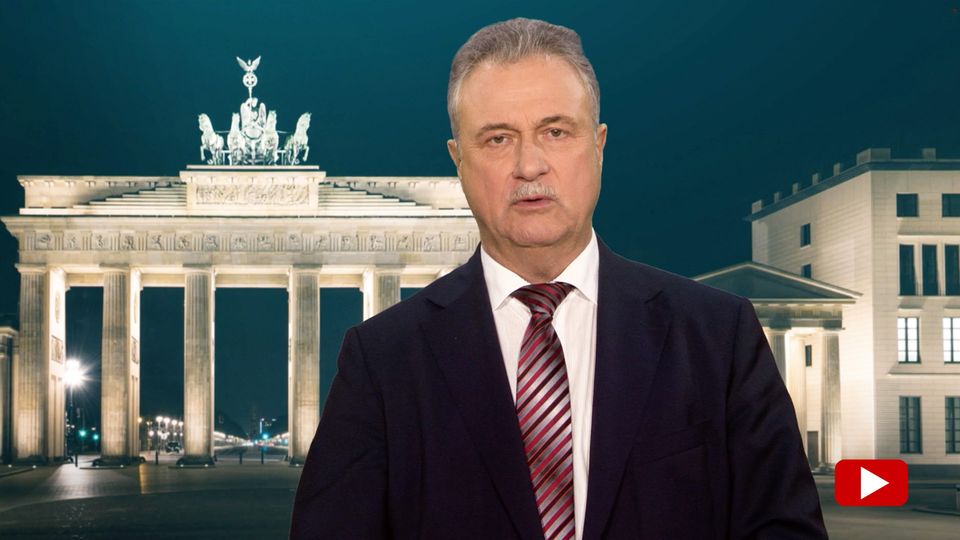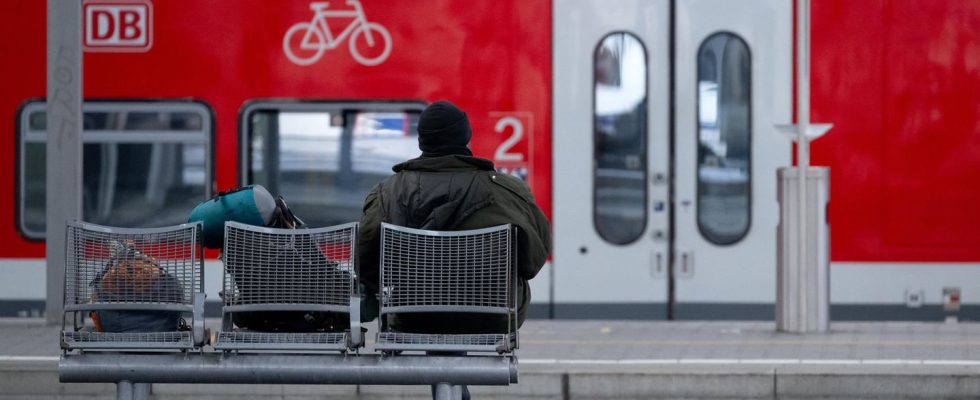strike
Deutsche Bahn invites new negotiations – GDL sets conditions
At the moment, Deutsche Bahn can almost only offer its passengers waiting times and standstill
© Sven Hoppe / DPA
Deutsche Bahn is making a new attempt to end the strike. The negotiations should take place on the basis of the old offer. A response from the train drivers’ union GDL is pending.
The GDL only wants to accept the offer if the railway presents a new and improved tariff offer, as the union announced. To do this, she gave the railway a deadline of 6 p.m. on Sunday.
The fifth industrial dispute in the ongoing collective bargaining dispute ended on Friday afternoon. The railway announced that S-Bahn and regional transport will be gradually expanded. In long-distance transport, however, the company wanted to stick to the short timetable throughout the day. The timetable will not be fully operational again until Saturday.
GDL ends railway strike
This time the GDL was on strike in passenger transport for 35 hours. The strike in freight transport began on Wednesday evening and ended at 5 a.m. on Friday morning. Here, too, it will take some time until the backlog of freight trains can be reduced.
Labor disputes
114, 117, 449 days: The longest and largest strikes in Germany
With the end of the fifth round of industrial action, the uncertainty for rail customers continues. GDL boss Claus Weselsky wants to announce future strikes with significantly less advance notice than before. It is therefore questionable whether the railway will be able to set up a basic timetable again the next time there is a strike. Weselsky emphasized that the train would no longer be a reliable means of transport.
New means of pressure: wave strikes
It is the first time that the union has resorted to such so-called wave strikes in the conflict. The GDL boss does not rule out labor disputes over Easter. He said recently that it is still too early to make any decisions regarding travel over the holidays.
According to its own statement, Deutsche Bahn invited the GDL “to negotiate based on the moderators’ overall proposal”. In the invitation letter, the railway makes it clear that it is not true that the company rejected the suggestion from intermediaries to shorten weekly working hours. Rather, they agreed on February 26th to “go beyond our pain threshold and to complete the negotiations on the basis of the moderators’ overall proposal.”

The mediators had proposed a reduction in weekly working hours in two stages from 38 to 36 hours by 2028. However, this is not sufficient for the GDL in the proposed form. In a letter dated March 8th to the railway negotiators, the GDL was also dissatisfied with the wage increase that had been offered so far and the term of the collective agreement. 30 months is too long. According to the GDL, the railway is also pushing for the elimination of previous holiday choice models, which is unacceptable.
Note: This article was updated after the strike ended.

